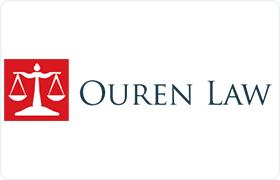Zillah Felony Lawyer, Washington
Sponsored Law Firm
-
 x
x

Click For More Info:
-
Ouren Law
4101 South Union Street Kennewick, WA 99337» view mapCriminal Defense Dedicated. Straightforward. Tough.
With more than a decade of experience, Attorney Ouren has helped many clients achieve successful results in their family law and criminal law matters.
800-971-6601
Not enough matches for Zillah Felony lawyer.
Below are all Zillah Criminal lawyers.
Christopher Scott Tait
Criminal, Divorce & Family Law, DUI-DWI, Divorce
Status: In Good Standing Licensed: 49 Years
William A Schuler
Accident & Injury, Criminal, Estate, Traffic
Status: In Good Standing Licensed: 30 Years
Lavette Nadine Holman
Litigation, Indians & Native Populations, Criminal, Immigration
Status: In Good Standing Licensed: 15 Years
Douglas Kell Garrison
Estate Planning, Criminal, Administrative Law, Bankruptcy
Status: In Good Standing Licensed: 24 Years
Andrea Salinas
Civil Rights, Family Law, Estate Planning, Criminal
Status: In Good Standing Licensed: 16 Years
 Kimberly Ouren Kennewick, WA
Kimberly Ouren Kennewick, WA Practice AreasExpertise
Practice AreasExpertise
